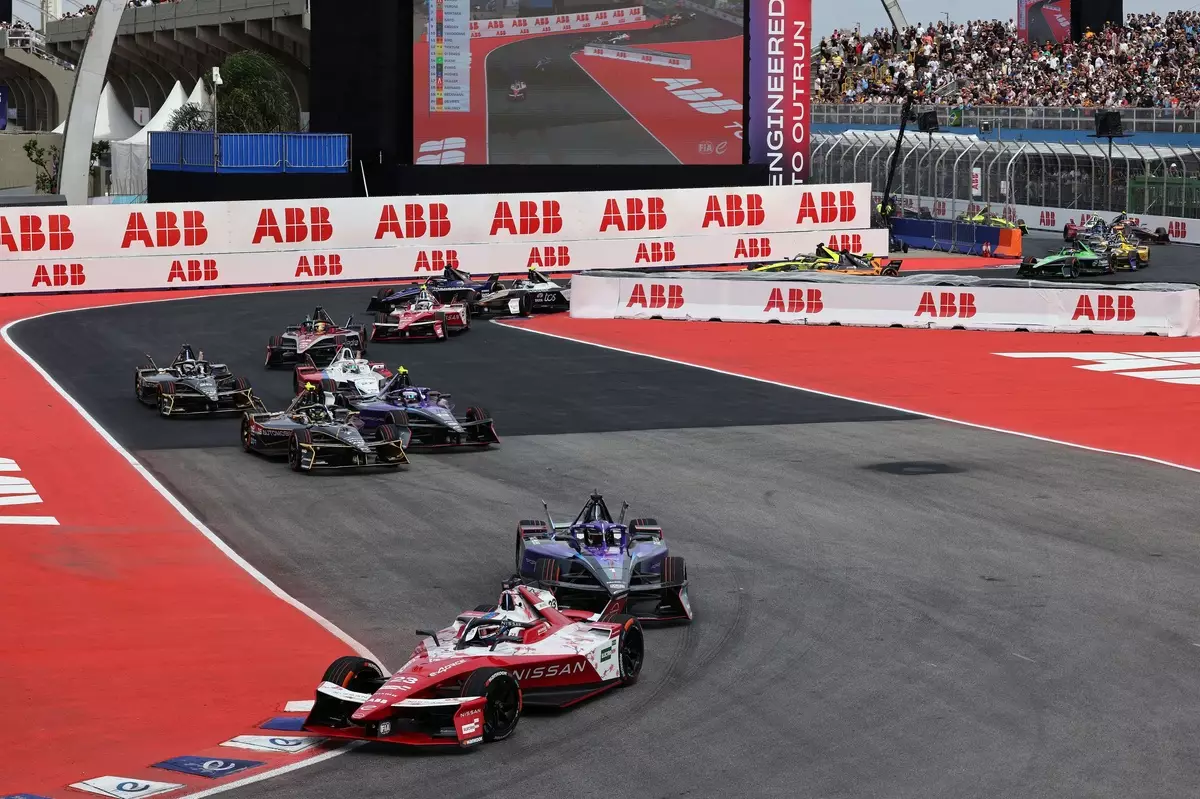The Sao Paulo E-Prix marked the beginning of the 2024-25 Formula E season, a time when tensions are high, expectations soar, and every driver yearns for a strong start. Among them was Oliver Rowland, the British driver for Nissan, who had aspirations that echoed the confidence he displayed during the race weekend. With a second-place qualifying position, Rowland seemed on the cusp of seizing a significant opportunity. However, challenges were lurking, and as the race unfolded, the narrative of promise quickly shifted to one of frustration.
Rowland’s ability to initially claim the lead after losing the pole position to reigning champion Pascal Wehrlein showcased his skill and determination. The early laps demonstrated the Briton’s potential as he held a commanding position over his competitors. However, it was soon clear that the complex dynamics of Formula E racing, intertwined with technical regulations and on-track incidents, would play a critical role in determining his fate.
The Impact of Strategy and Penalties
As Rowland transitioned from the lead to a secondary position due to the strategic maneuvering of Nick Cassidy with the new all-wheel-drive Attack Mode, the race reinforced that Formula E is as much a battle of wits and timing as it is of speed and skill. The introduction of Attack Mode introduced an interesting twist to the race dynamics. Unfortunately for Rowland, the subsequent moments unfolded rapidly, leading to a series of miscalculations that would haunt his performance.
The critical moment came with the imposition of a drive-through penalty. Rowland voiced his dissatisfaction candidly, acknowledging that “more than one f**k up” played a significant role in his downfall. This expression of disappointment reflects a broader issue regarding race management and the nuances of energy conservation in the electric racing series. The confusion surrounding the exact number of laps left in the race appeared pivotal; mismanagement of this information can result in strategic blunders that impact energy usage severely.
Rowland mentioned that if he had better visibility regarding the number of laps remaining, he could have strategically managed his energy more effectively. This suggests that in the realm of competitive racing, having precise information is just as crucial as the speed of the car itself. Missteps in data interpretation can lead to miscalculations, resulting in energy depletion, which Rowland experienced as he plummeted from a competitive position to 14th place.
Adding layers to Rowland’s narrative is the context of his Nissan team, which faced similar challenges. The penalty for overpower was not unique to him, affecting other drivers within his team and the customer McLaren entries as well. This shared experience among competitors highlights the operational complexities of Formula E and the importance of communication and strategy within teams.
While McLaren drivers managed to optimize their race impact and claw their way back up the field, Rowland’s experience serves as a poignant reminder of how quickly fortunes can change in racing. The McLaren drivers effectively capitalized on their early penalties, conserving energy and repositioning themselves to score valuable points. This contrasts sharply with Rowland, whose efforts were hampered by the compounded effects of strategic blunders and race penalties.
For Rowland, the Sao Paulo E-Prix serves not just as a missed opportunity but also as a moment of reflection and learning. The race began with promise, but the overwhelming feelings of disappointment post-race became significant learning experiences about adaptability in complex race scenarios. As he seeks to fine-tune his racing tactics in subsequent outings, it remains essential for him and his team to leverage the lessons learned from Sao Paulo.
Overall, the race epitomizes the unpredictable nature of motorsport, where even the most promising leads can evaporate in a heartbeat. For observers of the sport, it’s a reminder that success in Formula E necessitates not just speed, but also strategic finesse and impeccable communication between the drivers and their teams. The resilience to bounce back from such setbacks will be crucial for Rowland if he hopes for a more favorable outcome in the season ahead.

